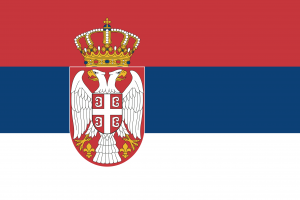Difference between revisions of "Language/Serbian/Grammar/Verbs:-Future-Tense/es"
< Language | Serbian | Grammar | Verbs:-Future-Tense
Jump to navigation
Jump to search
m (Quick edit) |
m (Quick edit) |
||
| Line 71: | Line 71: | ||
<span gpt></span> <span model=gpt-3.5-turbo></span> <span temperature=0.7></span> | <span gpt></span> <span model=gpt-3.5-turbo></span> <span temperature=0.7></span> | ||
==Otras lecciones== | |||
* [[Language/Serbian/Grammar/Nouns:-Gender-and-Number/es|Curso de 0 a A1 → Gramática → Sustantivos: Género y Número]] | |||
* [[Language/Serbian/Grammar/Pronouns:-Personal-Pronouns/es|Curso de 0 a A1 → Gramática → Pronombres: Pronombres Personales]] | |||
* [[Language/Serbian/Grammar/Verbs:-Past-Tense/es|Curso de 0 a A1 → Gramática → Verbos: Tiempo Pasado]] | |||
* [[Language/Serbian/Grammar/0-to-A1-Course/es|0 to A1 Course]] | |||
* [[Language/Serbian/Grammar/Cases:-Nominative-and-Accusative/es|Curso 0 a A1 → Gramática → Casos: Nominativo y Acusativo]] | |||
* [[Language/Serbian/Grammar/Verbs:-Present-Tense/es|Curso de 0 a A1 → Gramática → Verbos: Presente]] | |||
{{Serbian-Page-Bottom}} | {{Serbian-Page-Bottom}} | ||
Revision as of 21:45, 4 June 2023
Tiempo Futuro
El tiempo futuro en serbio se utiliza para indicar acciones que tendrán lugar en el futuro. En serbio, existen dos formas de tiempo futuro: el futuro simple y el futuro compuesto.
Futuro Simple
Para formar el futuro simple, se utiliza el infinitivo del verbo y se agregan las terminaciones correspondientes al pronombre personal.
| Serbio | Pronunciación | Español |
|---|---|---|
| Ja ću čitati | Ya chu chitati | Yo leeré |
| Ti ćeš pisati | Ti tseh pisahti | Tú escribirás |
| On/Ona/Ono će pevati | On/Ona/Ono tseh pevati | Él/Ella cantará |
| Mi ćemo igrati | Mi tsehmo eegrati | Nosotros jugaremos |
| Vi ćete gledati | Vee tseteh gledati | Vosotros miraréis |
| Oni/One/Ona će voziti | Oni/One/Ona tseh voziti | Ellos/Ellas conducirán |
Futuro Compuesto
El futuro compuesto se forma con el verbo auxiliar "biti" conjugado en presente y el participio pasado del verbo principal.
| Serbio | Pronunciación | Español |
|---|---|---|
| Ja ću biti čitao/čitala | Ya chu biti chitao/chitala | Yo habré leído |
| Ti ćeš biti pisao/pisala | Ti tseh biti pisaoh/pisala | Tú habrás escrito |
| On/Ona/Ono će biti pevao/pevala | On/Ona/Ono tseh biti pevao/pevala | Él/Ella habrá cantado |
| Mi ćemo biti igrali/igrale | Mi tsehmo biti eegrali/eegrale | Nosotros habremos jugado |
| Vi ćete biti gledali/gledale | Vee tseteh biti gledali/gledale | Vosotros habréis mirado |
| Oni/One/Ona će biti vozili/vozile | Oni/One/Ona tseh biti vozili/vozile | Ellos/Ellas habrán conducido |
Recuerda que el futuro también se puede expresar con la palabra "hoću" que significa "querer". Por ejemplo:
- Hoću da čitam knjigu - Quiero leer un libro
- Hoćeš li da igramo fudbal? - ¿Quieres jugar al fútbol?
¡Ahora ya sabes cómo formar el tiempo futuro en serbio!
Otras lecciones
- Curso de 0 a A1 → Gramática → Sustantivos: Género y Número
- Curso de 0 a A1 → Gramática → Pronombres: Pronombres Personales
- Curso de 0 a A1 → Gramática → Verbos: Tiempo Pasado
- 0 to A1 Course
- Curso 0 a A1 → Gramática → Casos: Nominativo y Acusativo
- Curso de 0 a A1 → Gramática → Verbos: Presente
